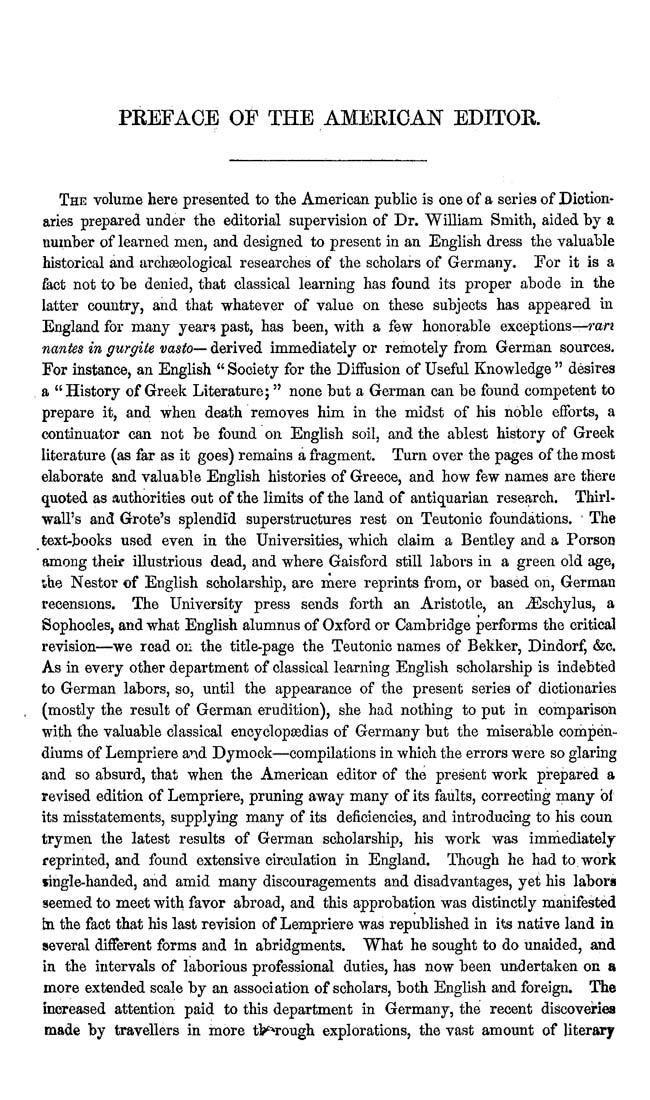PREFACE OF THE AMERICAN EDITOR.
The volume here presented to the American public is one of a series of Diction¬
aries prepared under the editorial supervision of Dr. William Smith, aided by a
number of learned men, and designed to present in an English dress the valuable
historical and archaeological researches of the scholars of Germany. Eor it is a
fact not to be denied, that classical learning has found its proper abode in the
latter country, and that whatever of value on these subjects has appeared in
England for many years past, has been, with a few honorable exceptions—ran
mantes in gurgite vasto— derived immediately or remotely from German sources.
For instance, an English " Society for the Diffusion of Useful Knowledge " desires
a "History of Greek Literature;" none but a German can be found competent to
prepare it, and when death removes him in the midst of his noble efforts, a
continuator can not be found on English soil, and the ablest history of Greek
literature (as far as it goes) remains a fragment. Turn over the pages of the most
elaborate and valuable English histories of Greece, and how few names are there
quoted as authorities out of the limits of the land of antiquarian research. Thirl-
wall's and Grote's splendid superstructures rest on Teutonic foundations. ' The
text-books used even in the Universities, which claim a Bentley and a Porson
among theif illustrious dead, and where Gaisford still labors in a green old age,
the Nestor of English scholarship, are mere reprints from, or based on, German
recensions. The University press sends forth an Aristotle, an ^Eschylus, a
Sophocles, and what English alumnus of Oxford or Cambridge performs the critical
revision—we read on the title-page the Teutonic names of Bekker, Dindorf, &c.
As in every other department of classical learning English scholarship is indebted
to German labors, so, until the appearance of the present series of dictionaries
(mostly the result of German erudition), she had nothing to put in comparison
with the valuable classical encyclopaedias of Germany but the miserable compen-
diums of Lempriere and Dymock—compilations in which the errors were so glaring
and so absurd, that when the American editor of the present work prepared a
revised edition of Lempriere, pruning away many of its faults, correcting many of
its misstatements, supplying many of its deficiencies, and introducing to his coun
trymen the latest results of German scholarship, his work was immediately
reprinted, and found extensive circulation in England. Though he had to work
single-handed, and amid many discouragements and disadvantages, yet his labors
seemed to meet with favor abroad, and this approbation was distinctly manifested
in the fact that his last revision of Lempriere was republished in its native land in
several different forms and In abridgments. What he sought to do unaided, and
in the intervals of laborious professional duties, has now been undertaken on a
more extended scale by an association of scholars, both English and foreign. The
increased attention paid to this department in Germany, the recent discoveries
made by travellers in more through explorations, the vast amount of literary
|








